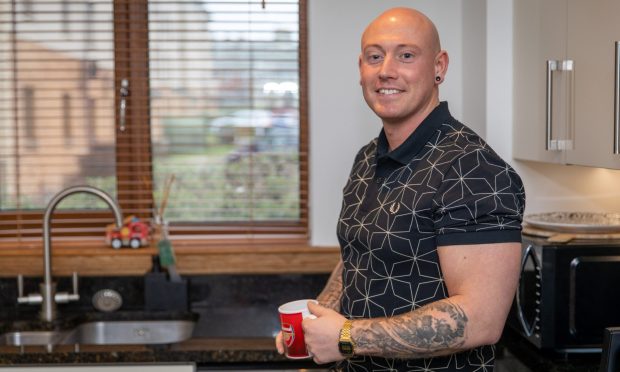A Dundee doctor’s fitness to practise has been found to be impaired after ‘serious failings’ in her treatment of a patient who overdosed and later died at Carseview Centre.
Dr Vanaja Puli was working as a locum for NHS Tayside when the misconduct occurred in December 2019.
The Medical Practitioners Tribunal Service (MPTS) found Dr Puli did not ensure regular checks were made to ensure the patient was alert after overdosing on morphine sulphate tablets.
It also found she failed to ensure the patient attended A&E to be treated for the overdose.
Patient care
The patient – referred to as ‘Patient A’ – had a history of mental health difficulties and had been diagnosed with Emotionally Unstable Personality Disorder (EUPD).
Patient A had been under the care of NHS Tayside’s mental health services for many years and had multiple admissions with suicidal thoughts, as well as suicide attempts.
They were admitted to Carseview and assessed by Dr Puli just before 1am on December 7, 2019 on a voluntary basis, having threatened to end their own life.
At approximately 8.30pm, Patient A told a member of nursing staff that they had taken 30 10mg morphine sulphate tablets.
Patient A was monitored every 15 minutes between 8 and 11pm. They were repeatedly encouraged to transfer to the emergency department for treatment but refused, saying they wished to die.
Dr Puli, who had been involved with Patient A’s care less than two weeks previously, began her night shift at 9pm.
A junior doctor told her about Patient A’s refusal to be transferred to the emergency department.
Following Dr Puli’s review, Patient A was observed hourly throughout the night, but was found unconscious and not breathing at 8.40am on December 8.
The death of Patient A was confirmed after a failed attempt at resuscitation.
Allegations
The tribunal considered a number of allegations against Dr Puli:
- That the doctor did not properly take into account the risks of an overdose of long-acting morphine
- That she did not ensure regular checks were made to see if Patient A was alert
- That she did not ensure Patient A attended at A&E.
These were all found proved by the tribunal.
Another allegation was that Dr Puli failed to ‘adequately assess whether Patient A had capacity to make decisions about their treatment’. This was found not proved.
Dr Puli admitted she failed to make an adequate record regarding the capacity decision in the medical notes.
‘Did not section patient’
However, in oral evidence to the tribunal, Dr Puli explained that in her professional opinion, at that time, Patient A had capacity to make decisions about their treatment.
As a result, the doctor did not section Patient A under the Mental Health Act (MHA), deciding instead to encourage Patient A to go to A&E for treatment.
The tribunal also found not proved the allegation that Dr Puli did not undertake an assessment of mental state, despite the fact Patient A had taken a serious overdose.
‘Dr Puli’s misconduct is easily remediable’
MPTS tribunal chair, Fiona Barnett, said: “Dr Puli was the doctor in charge of Patient A’s care, and made serious failings and incorrect assumptions.
“The tribunal was of the view that Dr Puli’s misconduct, which incorporates clinical failings, is easily remediable.
“It noted Dr Puli has attended a variety of CPD courses relevant to her misconduct, including record keeping, dealing with the long-term effects of opiates and morphine and suicide prevention courses.
Sanctions, if any, to be decided
“The tribunal was satisfied that if Dr Puli was faced with a similar situation in clinical practice, she would be alert to the issues raised in this case, and would act very differently in future.”
Dr Puli’s hearing will reconvene on a date yet to be determined. The tribunal will consider which sanction, if any, to be imposed on the doctor’s registration.
A spokesperson for NHS Tayside said: “This person has not worked as a locum specialty training doctor in NHS Tayside since 2019.
“A Local Adverse Event Review (LAER) and an Organisation Adverse Event Review relating to this case were held, and learning and actions were identified which were taken forward by the service.
“Members of the clinical team have been in contact with the patient’s family to offer an apology on behalf of NHS Tayside and share findings from the LAER review.”











